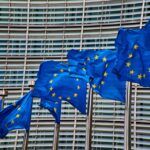The Commission, in cooperation with the President of the European Council, has put forward a European roadmap to phase-out the containment measures due to the coronavirus outbreak.
While we are still in firefighting mode, the necessary extraordinary measures taken by Member States and the EU are working. They have slowed down the spread of the virus and saved thousands of lives. However, these measures and the corresponding uncertainty come at a dramatic cost to people, society and the economy, and cannot last indefinitely.
While recognising the specificities of each country, the European roadmap establishes the following key principles:
- Timing is essential. Deciding that the time has cometo begin to relax confinement should be based on these criteria:
o Epidemiological criteria showing that the spread of the disease has significantly decreased and stabilised for a sustained period.
o Sufficient health system capacity, for example taking into account the occupation rate for intensive care units, the availability of health care workers and medical material.
o Appropriate monitoring capacity, including large-scale testing capacity to quickly detect and isolate infected individuals, as well as tracking and tracing capacity.
- We need a European approach. While timing and modalities for lifting containment measures differ between Member States, we need a common framework that is based on:
o Science with public health at its centre, while acknowledging that ending restrictive measures involves balancing public health benefits with social and economic impacts.
o Coordination between Member States, to avoid negative effects. This is a matter of common European interest.
o Respect and solidarity. This is essentialfor both health and socio-economic aspects. At a minimum, Member States should notify each other and the Commission in due time before they lift measures and take into account their views.
- Phasing-out confinement requires accompanying measures, including:
o Gathering harmonised data and developing a robust system of reporting and contact tracing, including with digital tools that fully respect data privacy;
o Expanding testing capacity and harmonising testing methodologies. The Commission – in consultation with the European Centre for Disease Prevention and Control – has adopted Guidelines today on different coronavirus tests and their performance;
o Increasing the capacity and resilience of national health care systems, in particular to address the predicted rise in infections after lifting restrictive measures;
o Continuing to reinforce medical and personal protective equipment capacities.
o Developing safe and effective treatments and medicines, as well as developing and fast-tracking the introduction of a vaccine to put an end to the coronavirus.
Next Stept
The Commission’s roadmap lists concrete recommendations Member States should consider when planning to lift containment measures:
- Actionshould be gradual: measures should be lifted in different steps, with sufficient time left between them to measure the impact.
- General measures should progressively be replaced by targeted ones. For example, protecting the most vulnerable groups for longer; facilitating the gradual return of necessary economic activities; intensifying regular cleaning and disinfection of transport hubs, shops and workplaces; replacing general states of emergencies with targeted government interventions to ensure transparency and democratic accountability.
- Internal border controls should be lifted in a coordinated manner. Travel restrictions and border controls should be removed once the border regions’ epidemiological situation converges sufficiently. External border should be reopened in a second stage and take account of the spread of the virus outside the EU.
- The re-start of economic activity should be phased-in: there are several models that can be implemented, e.g. jobs suitable for teleworking, economic importance, shifts of workers, etc. The entire population should not return to the workplace at the same time.
- Gatherings of people should be progressively permitted, taking into account the specificities of different categories of activity, such as:
- Schools and universities;
- Commercial activity (retail) with possible gradation;
- Social activity measures (restaurants, cafes) with possible gradation;
- Mass gatherings
- Efforts to prevent the spread of the virus should be sustained, with awareness campaigns to encourage the population to keep up the strong hygiene practices and social distancing.
- Action should be continuously monitored and preparedness developed for returning to stricter containment measures as necessary.
While confinement measures are gradually lifted, there is a need to strategically plan the recovery, revitalising the economy and getting back on a path of sustainable growth. This includes enabling the twin transition towards a greener and digital society, and drawing all lessons from the current crisis for the EU’s preparedness and resilience. The Commission will develop a Recovery plan, based on a revamped proposal for the next long-term EU budget (Multiannual Financial Framework) and the updated Commission Work Programme for 2020.
More information
#Coronavirus: press conference by President von der Leyen and President Michel






Leave a Reply